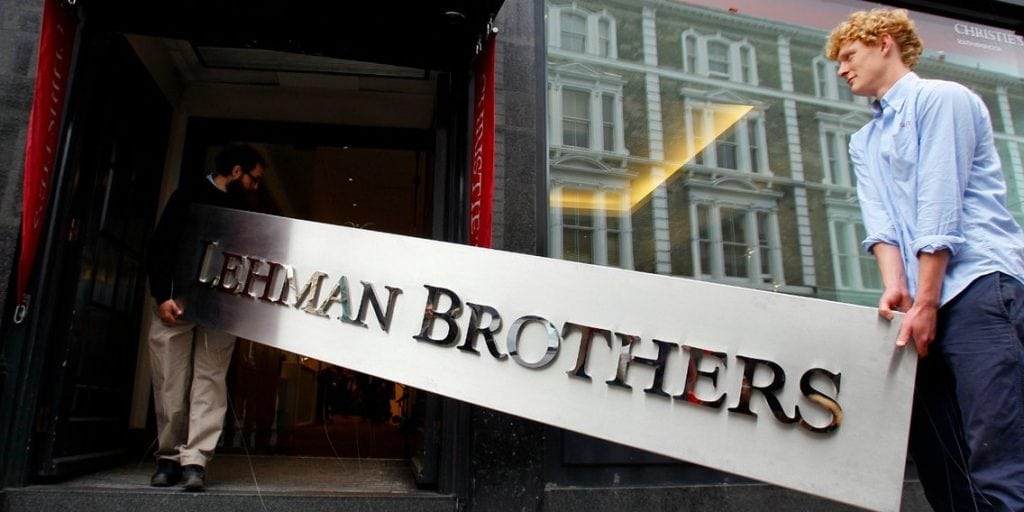October MBA Deadlines: NYU Stern, Ivey, Lehigh, and More

Douglas Adams once wrote, “I love deadlines. I love the whooshing noise they make as they go by.” Prospective MBAs applying for business school can appreciate Adams’ humorous writing, but should do their best to not live by the British author’s procrastinating prose. That’s where MetroMBA comes in! Check out our list of upcoming MBA program application deadlines in our top metros: Continue reading…
New York City’s Top 5 Highest Paying MBA Internships

MBA students are, likely, infinitely familiar with the hectic world of internships. “Another lowly internship?” may be a question that pops into the minds of many students as they advance into post-graduate education. But what they may not realize is that the right internship can not only provide a vital networking opportunity and a solid career foundation, but also an immensely high salary.
In New York City, a lucrative business school internship can prove important. Because of the city’s notorious cost of living, it might as well be required too. Below we’ve ranked some of the best paying internships for New York City MBAs to look out for.
Columbia Revisits The Great Recession, and More – New York News

Let’s explore some of the most interesting stories that have emerged from New York business schools this week.
Showing Discipline with Kindness, Compassion to Employees Results in Better Job Performance, Research Shows – Binghamton University School of Management
New Binghamton SOM research reveals that leaders who show “no compassion to employees doesn’t bode well for their job performance, while showing compassion motivated them to be better workers.”
Binghamton Assistant Professor of Management Chou-Yu Tsai and his coauthors “surveyed nearly 1,000 members of the Taiwanese military and almost 200 adults working full-time in the United States” to review the subordinate performance that sprang from Authoritarianism-dominant, Benevolence-dominant, and Classical paternalistic leadership styles.
Tsai explains, “Being benevolent is important because it can change the perception your followers have of you. If you feel that your leader or boss actually cares about you, you may feel more serious about the work you do for them.”
“Subordinates and employees are not tools or machines that you can just use. They are human beings and deserve to be treated with respect. Make sure you are focusing on their well-being and helping them find the support they need, while also being clear about what your expectations and priorities are. This is a work-based version of ‘tough love’ often seen in parent-child relationships.”
You can watch a video on the research below.
A Food Scientist Pursuing a Rutgers MBA Creates Perfect Life Nutrition – Rutgers Business School News
Perfect Life Nutrition founder and current Rutgers Business School MBA Juan Salinas talks about how his path to food science led him to take home the $20,000 top prize at this year’s Rutgers Business Plan Competition.
A native of Honduras, Salinas worked at Nabisco, Cadbury, and Power Bar, where he “combined his expertise in food science with knowledge he gained in sports nutrition working on a master’s offered by the International Olympic Committee.”
He left the corporate ringer in 2015 to start Perfect Life Nutrition and its flagship P-nuff Crunch Baked Peanut Puff, a plant-based protein snack that satisfied Salinas’ desire to make something “tasty and nutritious.”
According to the Rutgers Business School News, Perfect Life Nutrition has since “pushed out two new versions of P-nuff Crunch, both are peanut-based but one is cinnamon-dusted and the other is flavored with cocoa.”
You can read the rest of Salinas’ article with Rutgers Business School here.
Dodd-Frank a Flop: Columbia Business School Study Recommends Fundamental Reforms for Landmark Financial Regulation – Columbia Business School
A decade after the Great Recession hit, new Journal of Applied Corporate Finance research from CBS Professor Charles Calomiris unpacks “numerous flaws in post-crisis financial regulations and proposes modifying or eliminating a number of recently approved financial reforms, including pieces of Dodd-Frank and the Volcker Rule.”

Lehman Brothers’ collapse in 2008 was among the first major signs of massive economic distress – Photo via Oli Scarff/Getty Images
In a recent interview with the school, Calomiris explains, “The Great Recession created a rush in Washington to establish guardrails for the financial industry. But good intentions, expanded powers, and new mandates do not necessarily lead to smart policy decisions.”
“Ten years later, it’s clear that the Dodd-Frank Act and further regulations are failing to curb risky behavior while obstructing economic growth. We can do much better than these costly, unsustainable regulations that will do little to prevent a repeat of the financial crisis.”
Calomiris proposes nearly two-dozen reforms to current regulations, including:
- “Linking financial regulation directly to the performance of the financial sector and demonstrate that regulatory costs are justified by measurable benefits.
- “Restoring the role of laws and formal rule-making in financial regulation and end the discretionary authority of politicized actors like the FSOC and the Consumer Financial Protection Bureau.”
- “Holding regulators accountable to the public by requiring transparent regulatory standards.”
Has Financial Regulations Been a Flop? (or How to Reform Dodd-Frank) can be found here.
New MBA Jobs: Deloitte, Visa, Fidelity and More

Whether it’s an entry level placement for recent graduates, or a position fit for a seasoned business veteran who just added an MBA to their resume, there’ lots of exciting new MBA jobs out there. This week is no different—check out some of the best new MBA jobs out there below: Continue reading…
Real Humans of the University of Georgia Terry College of Business

The University of Georgia can seem daunting from a distance. With nearly 40,000 total students, it is the largest university in the entire state, with over 400 buildings attached to its name spread across 30 Georgia counties. The university offers an impressive 140 degrees from its 17 constituent schools, including the C. Herman and Mary Virginia Terry College of Business, located on the main campus in Athens. Because of this, one may expect the size its MBA classes to be quite intimidating. But despite the grand scope of UGA, Terry MBA students have an intimate setting and an even more surprising bonus: extensive affordability.

Tuition for in-state full-time MBA students at the Terry College of Business starts at a comfortable $13,404 per year, while non-Georgia residents pay $32,112 per year. Compared to the tuition costs of some of the state’s other well-known universities, such as Emory ($124,000 for the entire two-year MBA), the price tag is relatively paltry. In fact, the Terry College of Business full-time MBA program is one of only five in the U.S. News & World Report top 50-ranked business schools that offers yearly in-state tuition under $15,000.
Alongside the impressive affordability, UGA Terry MBAs boast some eye-popping career statistics. Roughly 90 percent of the Class of 2018 was employed within just three months of graduation, reporting an average starting salary of $90,250 and an average signing bonus $14,214. When factoring in the meager tuition rates, it becomes readily apparent that the Terry MBA is one of the best returns on investment not just in Georgia, but in the U.S. as a whole.
But what kind of students make up the UGA Terry College of Business MBA Class? On the surface, the statistics may seem familiar. Just over 100 students are currently enrolled in the business school’s full-time MBA program, with nearly 66 percent male students and 34 percent female students. Those enrolled in the program boast an average GMAT score of 665 with a relatively high undergraduate GPA of 3.53. The vast majority of students in the class come from Georgia at 50 percent, while 25 percent of students are of international status. However, statistics like these could hardly tell the rich and complex stories of each individual student enrolled at UGA Terry.
To get a greater understanding of what it means to be a UGA Terry MBA, we spoke with several current students, including a former Army intelligence officer, a Fulbright recipient, and a Minneapolis marketing guru, alongside many other promising future grads. Read on to see their stories and what the future may hold for life after an MBA.
DMSB Keynote Speaker Encourages MBAs, New Startups, and More – Boston News

Let’s explore some of the most interesting stories that have emerged from Boston business schools this week.
Life is Like a Venture Investment, Biotech Entrepreneur Tells Business Graduates – D’Amore-McKim Blog
The Northeastern University D’Amore-McKim School of Business selected biotech entrepreneur Dr. Gerald Chan as the keynote speaker at the DMSB graduation ceremony last month.
Dr. Chan, whose private investment firm Morningside Group funds “life sciences startups that are working to discover new ways to treat disease,” implored the assembled crowd at Matthews Arena to “live a life that makes themselves and their loved ones proud” even if “life can be at times so scary and at other times so exhilarating.”
Dr. Chan shared a personal anecdote about his father’s refusal to accept a job at casino on ethical grounds: “Had he accepted that offer, our family would have become financially richer. But because he acted on his ethical principles against his own economic interest, my family can stand tall today.”

D’Amore-McKim School of Business graduates, during last month’s ceremony / Photo via damore-mckim.northeastern.edu
You can read the full article here for a complete overview of the ceremony.
Winning Paper Shows Network Effects Fuel Business Value and Upend Strategy – Questrom School of Business Blog
BU Questrom School of Business‘ Marshall Van Alstyne recently co-authored new research that finds that “platform businesses” that depend on high numbers of users like Microsoft, Apple, Uber, Google, and Amazon scale much faster by moving value creation from “internal production to external orchestration.”
In “Platform Ecosystems: How Developers Invert the Firm,” Van Alstyne and his co-authors conclude that this approach will reverberate through “every part of a business, from marketing to operations to human resources.”
“Instead of a firm doing all its own marketing, consumers can add value through viral marketing. Instead of AirBnB incurring operating costs of a hotel stay, ecosystem partners bear those costs.”
“Instead of hiring employees inside the firm, platforms rely on freelancers outside the firm. In each of these instances, the value-creating activity shifts from inside to outside the firm. This shift affects all of the traditional business functions. It also has profound implications for fair division of wealth in society.”
You can read the full article here and the complete paper here.
25 MIT Startups To Watch – MIT Sloan Newsroom
On Saturday, September 8, Bill Aulet, Managing Director of the Martin Trust Center for MIT Entrepreneurship told the crowd at the MIT Kresge Auditorium, “We’re not just going to be doing another dating app.”
“We’re going to be doing things like addressing inclusion in society, making a more informed citizen throughout the world, cybersecurity, mental health, urbanization, improving ed-tech, improving health care. These are significant problems that the brightest people in the world should be working on, and those people are MIT students.”
The ambitions Aulet spoke about were created from the 25 startups built within the MIT delta v accelerator, which you can check out here.
